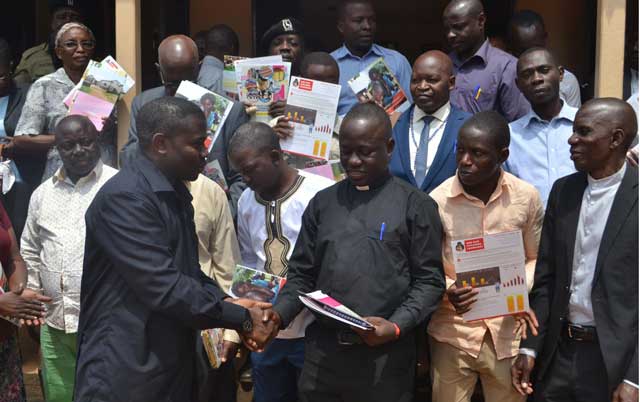
Wakiso, Uganda | THE INDEPENDENT | A new report by a consortium of Non-Government Organizations in Wakiso District has rallied district leaders to advocate for the use of native languages in Primary and Secondary schools.
The consortium of NGOs led by Hyslink community Initiative indicated that many of the children studying in government schools in Wakiso are failing because of the English language barrier. They were speaking during the launch of a report on Primary and secondary education at Katabi Town Council headquarters on Friday afternoon.
Whereas Wakiso District was ranked among the best performing districts in Uganda, several schools, especially in rural neighbourhoods such as Bussi, Kasanje, Nakawuka, and Busukuma, registered poor performances. The organizations indicated that there is a need to use a language that learners in such areas can comprehend.
Ahmed Kibirige, the National Coordinator of Hyslink community initiative says that most of the rural schools within Wakiso District have children in Primary six who cannot read and write, or even understand what is being taught in English.
The report also indicated that several teachers in the Primary and secondary sections in Wakiso are not qualified enough to easily teach children. For instance, it indicates, 70 per cent of the teachers in schools in Bussi sub-county are not qualified.
But area leaders blame the low levels of literacy among children on the failure by the central government to provide qualified teachers to the different schools in the hard to reach areas across the district.
Albert Mugambwa, one of the leaders calls for the intervention of the Ministry of Education and sports to ensure that all children access quality education.
Wakiso District Education Officer Henry Lwanga Ssempijja believes there is a need to improve the quality of teachers in rural schools through improved training, welfare and facilitation.
The research was conducted in 29 government schools within Wakiso District
******
URN
 The Independent Uganda: You get the Truth we Pay the Price
The Independent Uganda: You get the Truth we Pay the Price





